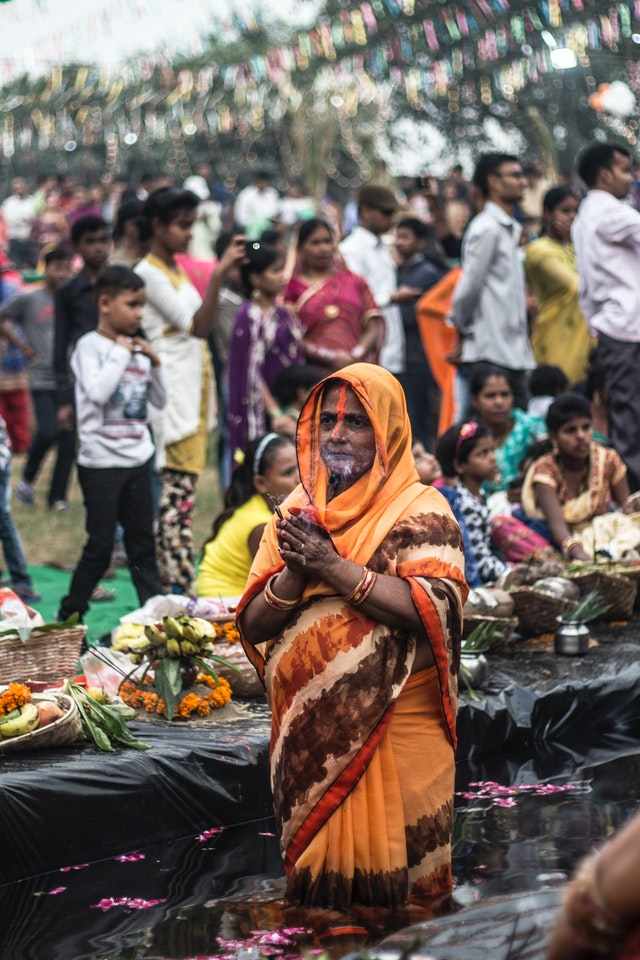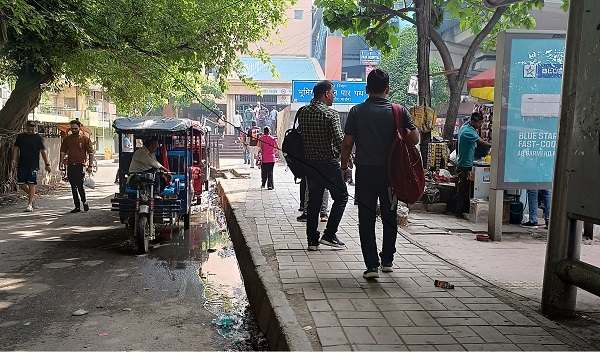Countries without an army, Is it really possible? We discovered more than 30 countries that do not currently have armed forces using the CIA World Factbook. While some of the countries on this list have no military at all, others are reliant on other, more powerful countries to assist as protection forces in the event of a crisis.
For instance, the United States is responsible for the military protection of the Marshall Islands, whereas France and Spain both give military support to Andorra due to its closeness.
1. Dominica

Dominica is a Commonwealth member and an island state in the Caribbean Sea in the eastern Pacific. It is made up of numerous sovereign states, including the United Kingdom and its former colonies. The Commonwealth of Dominica Police Force, which also serves as a coastguard, is Dominica’s police force. Due to some odd activities of the army in 1981, this country has abandoned the army forever and removed it from its land, and like other countries like this, the police here operate the system of the country.
2. Monaco

Monaco, the world’s second-smallest country, is located on the French Mediterranean coast and is recognised as a tax haven. The city-state, which is only 0.78 square miles in size, has a population of 31,000 people. Monaco’s defence is handled by France, yet there is still a national police force in place. Let us tell you that this country abandoned army power in the 17th century, but two small military units are always active here.
Out of which one is working for the security of the prince and the other for the safety of the common citizens. The full responsibility for the security of Monaco lies with its neighbouring country, France.
3. Liechtenstein

Liechtenstein is the world’s sixth-smallest country. Despite the absence of military forces, the country’s national police force works closely with military forces from surrounding nations such as Austria and Switzerland. The reason for the removal of the army from this country was economic.
This country was not able to bear the expenses of the army, due to which the army was removed from here, but let us tell you that when a situation of war arises here, the organization of the army is included in the policy of this country.
4. Grenada

Grenada is an island country in the Caribbean Sea, located in the northern section of the Lesser Antilles. Grenada has been without a military force since the invasion by the United States in 1983. The Royal Grenada Police Organisation, however, is a police force that also serves as the coast guard. Due to the sudden attack on America, the government here took drastic measures in 1983, permanently removing the army from its territory, and the regional security system has been organised to protect it.
5. Iceland

Friends, you will be surprised to know that there is no army in this country since 1869. Iceland is a member of the NATO organization, which has a security agreement with the United States.
6. Mauritius

Mauritius is an island country in the Indian Ocean with a population of 1.3 million people. In 1968, the country declared independence from the United Kingdom.
Despite the fact that Mauritius does not have its own conventional armed forces, it does have police forces and a paramilitary outfit known as the Special Mobile Force. This is designed to ensure the country’s internal and foreign security.
The people of Mauritius, a well-known country of the world, also live without the army. A personal force made up of about 10,000 police personnel looks after the security and law and order here.
7. Greenland

Greenland is the world’s largest island, geographically located in North America but administratively part of Denmark. Greenland voted in 2008 for greater self-government and internal responsibility.
Greenland approved the Self-Government Act in 2009, recognizing the right to self-determination of its citizens under international law. Denmark, on the other hand, retains responsibility over a number of policy issues, including foreign, security, and financial policy. As a result, the Danish government is also in charge of the island’s defense.
8. Andorra

The population of the small-state between France and Spain is estimated to be around 85,000 people. The Pyrenean country has its own police force, the Cos de Policia d’Andorra, but no military. Because of their close vicinity, Spain and France are responsible for the defense of the independent state.
9. Aruba

Aruba is a Caribbean island state that has been a distinct, semi-autonomous part of the Kingdom of the Netherlands since 1986. It has become increasingly popular with tourists in recent years.
The Netherlands is responsible for the country’s defense, which has a population of 116,000 people. The national security services of Aruba are dedicated to combating crime and terrorism.
10. Cayman Islands

The Cayman Islands are a collection of Caribbean islands that are part of the British Overseas Territories. This means that Britain is also in charge of the archipelago, which is around 150 miles south of Cuba.
The Royal Cayman Islands Police Force, however, remains the national police force of the Cayman Islands.
11. Cook Islands
The Cook Islands are an island country in the southern Pacific named after Captain James Cook.
They are self-governing but have an individual liberty with New Zealand. As a result, New Zealand is responsible for its defense, but only if the Cook Islands seek it.
12. Costa Rica

Costa Rica has had no armed troops since 1949, but police units are frequently utilized for defense. In 1983, the country, which is known as the “Switzerland of Central America,” declared its permanent and unarmed neutrality. Costa Rica is, in fact, under US protection.
13. Curacao (Curaçao)

Curacao is a Caribbean island state with no armed forces. The foreign and security policies of the 171-square-mile island, which has a population of about 150,000 people, are, nevertheless, under the jurisdiction of the Dutch government.
Curacao’s inhabitants voted in a referendum in 2009 to become a self-governing nation inside the Kingdom of the Netherlands. Maritime security is also provided by the Dutch Caribbean Coast Guard (DCCG).
14. Faroe Islands
The Faroe Islands, located in the North Atlantic between the British Isles, Norway, and Iceland, have a population of 51,000 people.
It do not have permanent armed troops, but their protection is the responsibility of the Danish government. The Faroe Islands’ territorial defense is the responsibility of the Arctic Command, which is part of the Danish armed forces.
15. French Polynesia
French Polynesia is a collection of small and big islands in the southern Pacific Ocean. Tahiti is the most well-known island in the territory. French Polynesia has a population of 290,000 people but no armed forces of its own. Instead, France is in charge of the country’s defense.
16. Kiribati

Kiribati, an autonomous state since 1979, is located in the western Pacific Ocean and has a population of 109,000 people.
Kiribati, formerly known as The Gilbert Islands, has no permanent military services, and the constitution prohibits the development of one. The island state does, though, have police forces.
17. Marshall Islands
The Marshall Islands obtained independence in 1986 after nearly four decades under US control.
Because the Marshall Islands lack their own military forces, the United States continues to provide territorial defense.
18. Micronesia
The Federal States of Micronesia was formed in 1979 when parts of the Caroline Islands, a former UN trust territory in the Western Pacific under US administration, combined and approved their own constitution.
In 1986, the country gained its independence. Because the island state lacks its own military, the United States is responsible for its defense.
19. Montserrat
Since 1783, the Caribbean island of Montserrat has been considered a British overseas territory. Many of the island’s residents have gone overseas in the last 25 years as a result of periodic volcanic eruptions.
Montserrat has its own police force, but no formal military, and its defense is the responsibility of the United Kingdom.
20. Nauru
Nauru is the world’s smallest nation, located south of the Marshall Islands. After been annexed by numerous countries in the nineteenth and twentieth centuries, the country was named a UN trust territory during WWII.
The little island won its independence in 1968. For its nearly 10,000 residents, there is no military, but Australia is responsible for defense, according to an unwritten arrangement.
21. Panama

Panama, a Central American republic, disbanded its military in 1990 and replaced it with the Panamanian Public Forces.
A national police force, a national aviation service, and a border service are among them. Panama’s constitution has prevented the establishment of a standing military force since 1994.
22. Niue
Niue Island is a self-governing territory in free association with New Zealand, located in the South Pacific.
It has a population of only 1,600 people. Despite the fact that the small island lacks its own military, it does have its own police force. The defense of this small island is provided by New Zealand.
23. Samoa
In 1962, the islands that are now known as Samoa became the first Polynesian nation to gain independence.
Samoa has its own police force but no organized defense system or professional armed troops. In addition, there are informal defense ties with New Zealand.
24. Vanuatu
Vanuatu was a part of the New Hebrides, a group of Pacific islands managed by the United Kingdom and France, until 1980, when it gained independence.
Vanuatu, an island nation with over 80 islands, does not have a traditional military, but it does have the Vanuatu Police Force, Vanuatu Mobile Force, and Police Maritime Wing (PMW).
25. St.Lucia
St. Lucia is an island country in the West Indies that is part of the Commonwealth. Although the state lacks its own military, it does have its own police force, which includes a special unit and a naval unit.
26. Palau
The archipelago, which is located west of the former Caroline Islands, refused to join the newly formed Federated States of Micronesia in 1978 and instead declared independence as the State of Palau.
The United States and Palau still have a free-association agreement in place. As a result, the United States is permitted to post military forces in the area. This, however, has not yet occurred. Palau has its own national police force.
27. Solomon Islands

Since the Solomon Islands gained independence in 1978, there have been numerous riots and violence and a high crime rate on the islands.
Between 2003 and 2017, 15 countries sent help missions to the Solomon Islands, consisting of police, military, and civilian advisors.
The goal of these operations was to bring civil and political order back to the country. Although the Solomon Islands do not have a standing army, they do have a police force.
28. St. Vincent and the Grenadines
After being subjected to the United Kingdom for a long period, the Caribbean island state of St. Vincent and the Grenadines obtained independence in 1979. The island’s 102,000 residents have no military, but the island state does have its own police force.
29. Tuvalu
Tuvalu, an island nation in the Pacific Ocean, was known as the Ellice Islands until 1978, when it gained independence (a British colony).
The world’s fourth-smallest country has a population of roughly 11,000 people and no military of its own. Tuvalu, on the other hand, has its own police force.
30. San Marino
San Marino is not just the oldest known republic, but also the third-smallest European country. The mini-state, which is totally bordered by Italy, does not have a regular armed forces but does have a volunteer military corps that conducts ceremonies and can assist the police.
The government reserves the power to call all San Marino citizens between the ages of 16 and 60 to service in the event of an emergency. Italy, on the other hand, is in charge of defense.
31. Sint Maarten
Sint Maarten is an autonomous Caribbean island that is part of the Kingdom of the Netherlands. Saint-Martin, in the northwestern section of the island, is a French overseas territory.
Sint Maarten has no formal military forces, and the Netherlands is responsible for the island’s territorial defense.

About the Author
Ankita is a German scholar and loves to write. Users can follow Ankita on Instagram ![]()
Why Dogs Bark at Some People and Not at Others ?
Everyone knows that a dog can bark at one person instantly and for no apparent…
9 FALSE BELIEFS ABOUT MENSTRUATION IN INDIA
Aww !! Periods days, the painful and restless days for every women, Mensuration days of…
Do you know yourself ? ask yourself these question
Do you really know about yourself who can face many challenges and straggles of life?…
Can’t believe the first computer game “Spacewar” didn’t make anything
The gaming industry has rapidly evolved to become one of the most promising and fastest…
Why Some Most Indians are not following the Rules ?
Enjoy the time, my friends! Have you ever wondered how we Indians have made breaking…
Amazing story of Samuel Jackson no less than a movie
The first African-American actor that comes to mind in our minds is Samuel Leroy Jackson….






